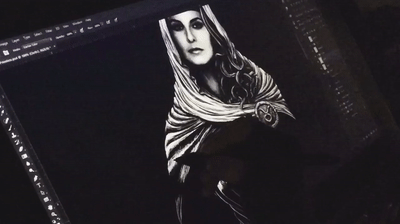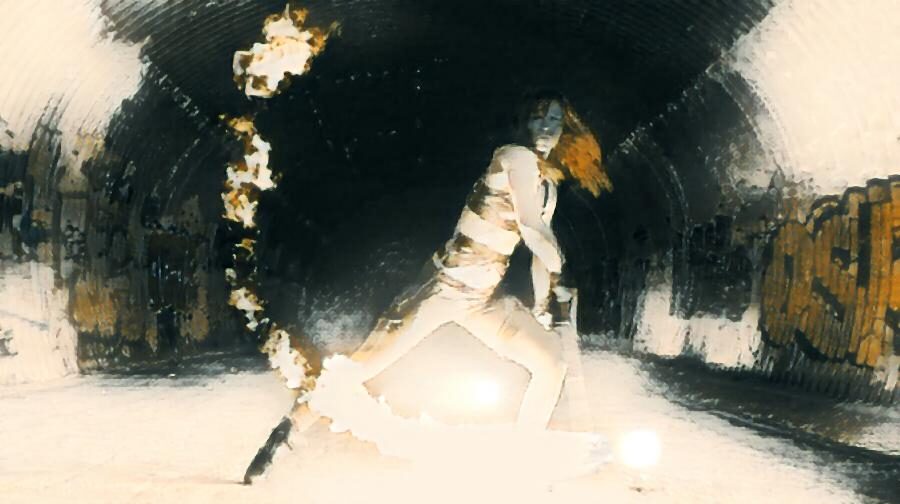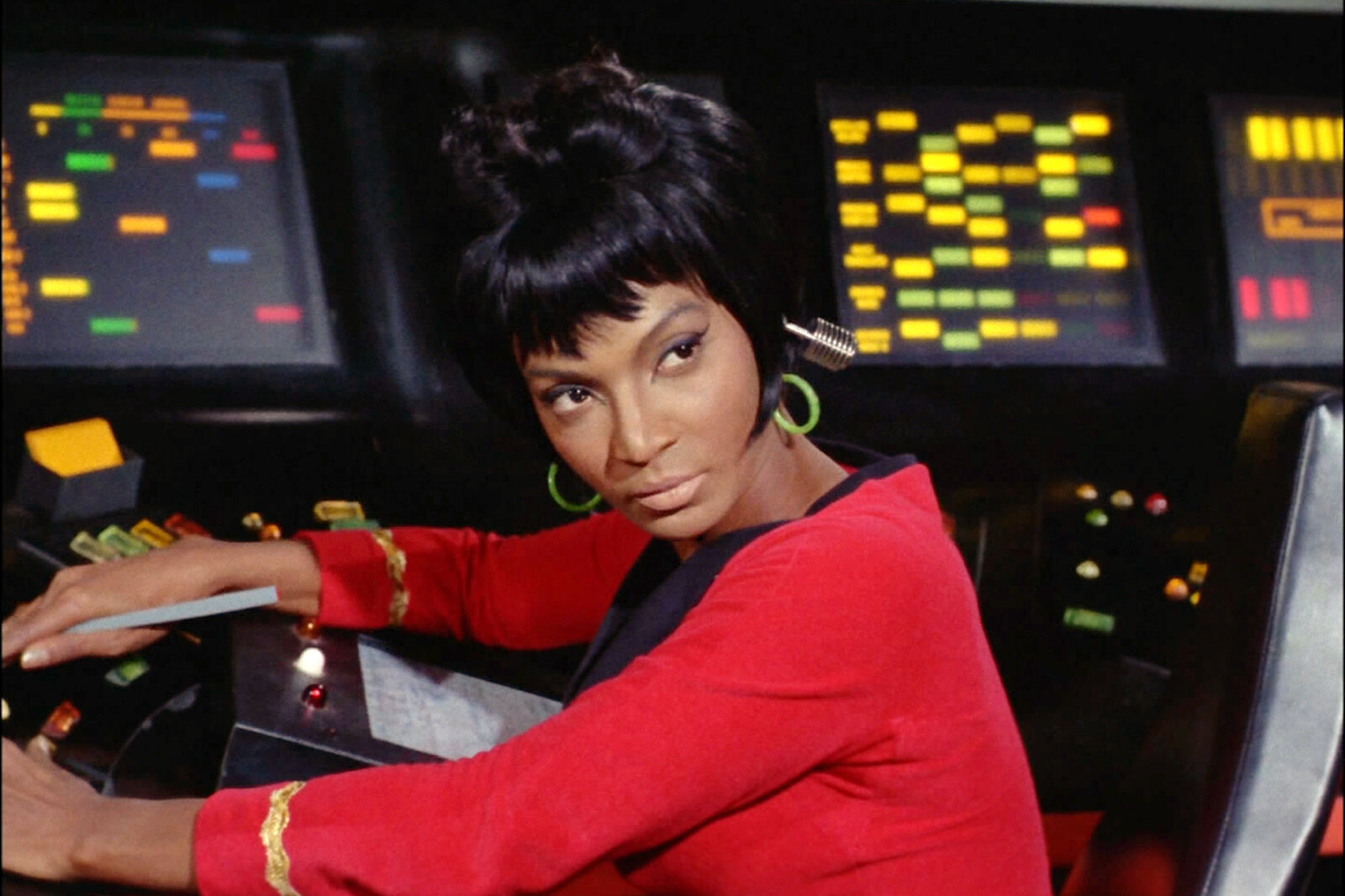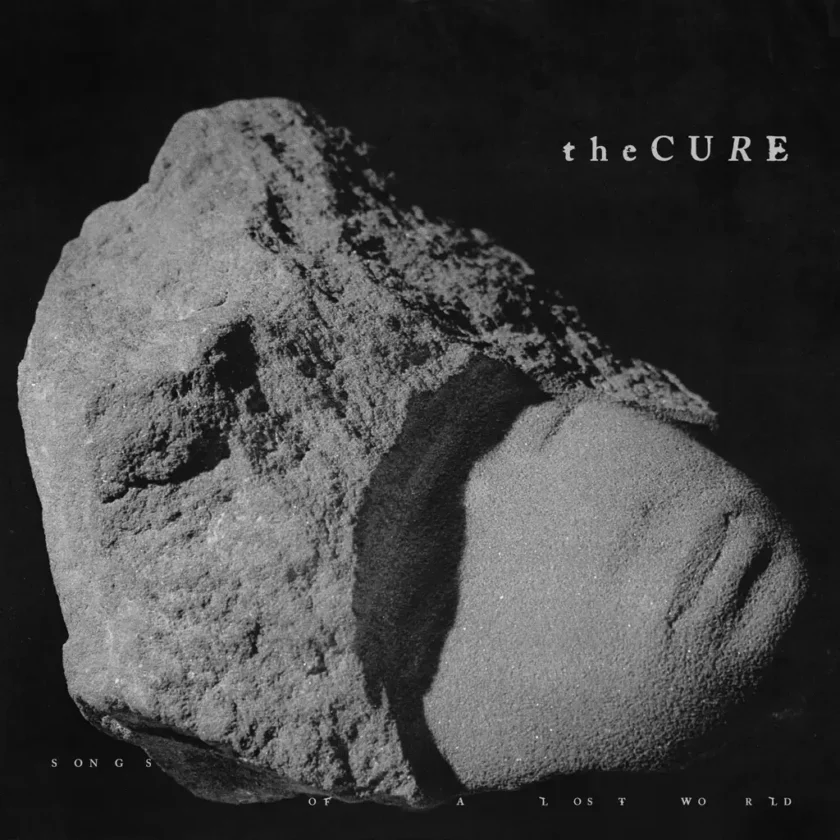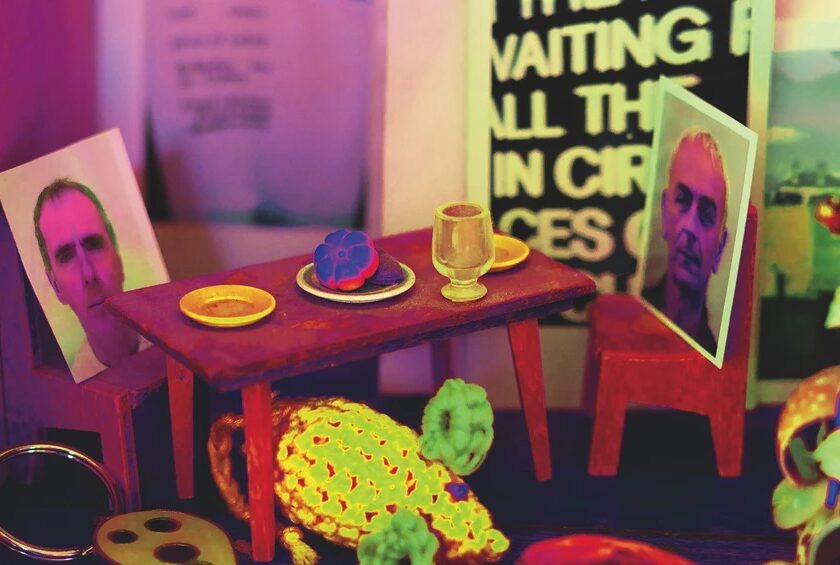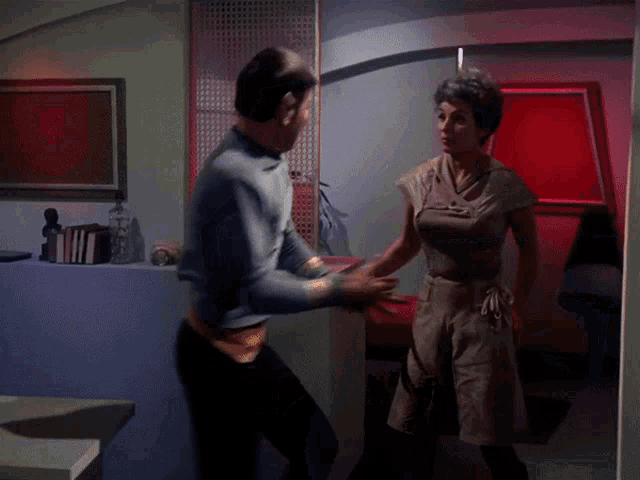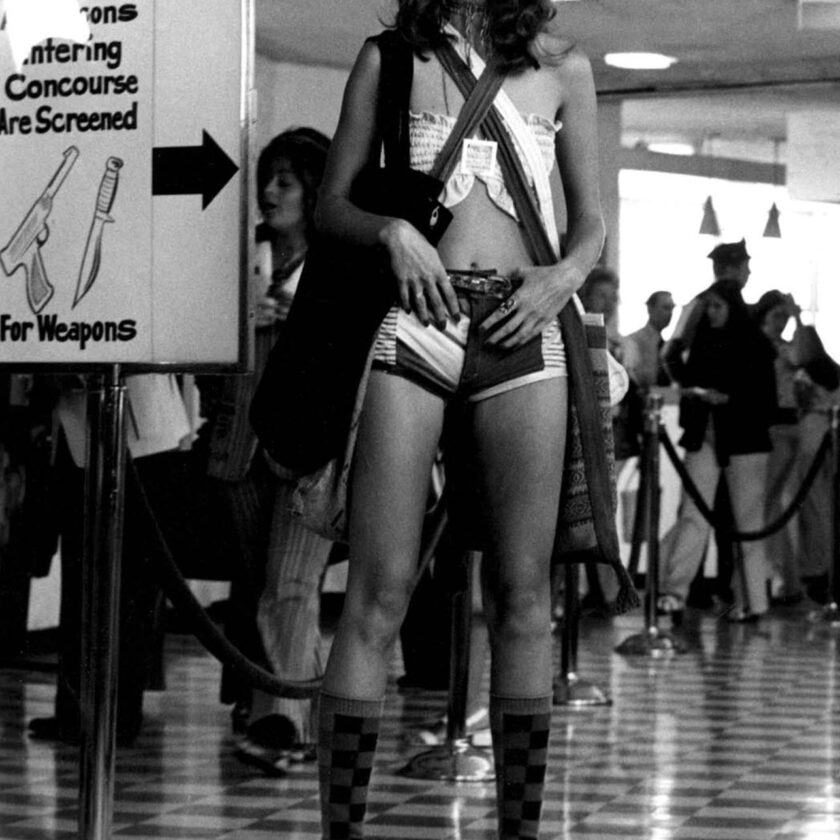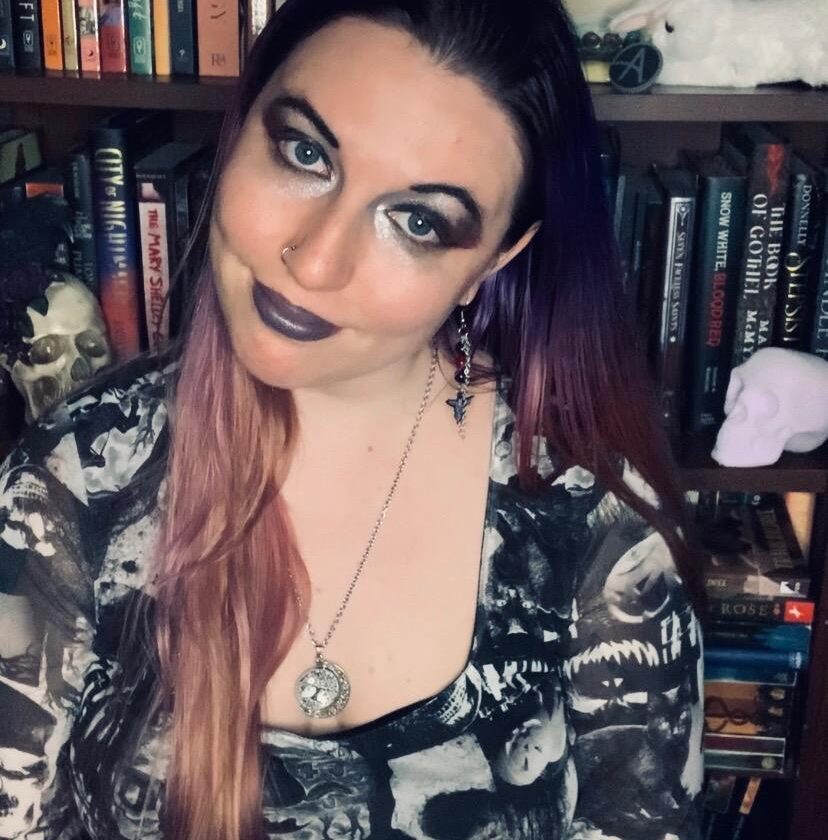Nichelle Nichols (/nɪˈʃɛl/, born Grace Dell Nichols; December 28, 1932 – July 30, 2022)[1] was an American actress, singer, and dancer best known for her portrayal of Nyota Uhura in Star Trek: The Original Series, and its film sequels. Nichols’ portrayal of Uhura was ground-breaking for African American actresses on American television.[2] From 1977 until 2015, Nichols volunteered her time to promote NASA‘s programs, and to recruit diverse astronauts, including women and ethnic minorities.[3][4]
Grace Dell Nichols was born the third of six children on December 28, 1932,[5][6][7] in Robbins, a suburb of Chicago, Illinois, to Samuel Earl Nichols, a factory worker who was elected both town mayor of Robbins in 1929[8] and its chief magistrate, and his wife, Lishia (Parks) Nichols, a homemaker.[9] Later, the family moved into an apartment in the Woodlawn neighborhood of Chicago. For high school, Nichols attended Englewood High School, from where she graduated in 1951.[10][11] Nichols also studied in New York City and Los Angeles.
Nichols’ break came in an appearance in Kicks and Co., Oscar Brown‘s highly touted but ill-fated 1961 musical.[12] In a thinly veiled satire of Playboy magazine, she played Hazel Sharpe, a voluptuous campus queen who was being tempted by the devil and Orgy Magazine to become “Orgy Maiden of the Month”. Although the play closed after a short run in Chicago, Nichols attracted the attention of Hugh Hefner, the publisher of Playboy, who booked her for his Chicago Playboy Club.[13][14] She also appeared in the role of Carmen for a Chicago stock company production of Carmen Jones and performed in a New York production of Porgy and Bess. Between acting and singing engagements, Nichols did occasional modeling work.[15]
In January 1967, Nichols also was featured on the cover of Ebony magazine, and had two feature articles in the publication in five years.[16] Nichols toured the United States, Canada, and Europe as a singer with the Duke Ellington and Lionel Hampton bands.[17] On the West Coast, she appeared in The Roar of the Greasepaint and For My People and she garnered high praise for her performance in the James Baldwin play Blues for Mister Charlie. Prior to being cast as Lieutenant Uhura in Star Trek, Nichols was a guest actress on television producer Gene Roddenberry‘s first series The Lieutenant (1964) in an episode, “To Set It Right“, which dealt with racial prejudice.[18]
Star Trek
Main article: Nyota Uhura
On Star Trek, Nichols was one of the first Black women featured in a major television series. Her prominent supporting role as a bridge officer was unprecedented.[2] Nichols was once tempted to leave the series; however, a conversation with Martin Luther King Jr. changed her mind. Towards the end of the first season, Nichols was given the opportunity to take a role on Broadway. She preferred the stage to the television studio, so she decided to take the role. Nichols went to Roddenberry’s office, told him that she planned to leave, and handed him her resignation letter. Roddenberry tried to convince Nichols to stay but to no avail, so he told her to take the weekend off and if she still felt that she should leave then he would give her his blessing. That weekend, Nichols attended a banquet that was being run by the NAACP, where she was informed that a fan really wanted to meet her.[19]
I thought it was a Trekkie, and so I said, ‘Sure.’ I looked across the room and whoever the fan was had to wait because there was Dr. Martin Luther King walking towards me with this big grin on his face. He reached out to me and said, ‘Yes, Ms. Nichols, I am your greatest fan.’ He said that Star Trek was the only show that he, and his wife Coretta, would allow their three little children to stay up and watch. [She told King about her plans to leave the series because she wanted to take a role that was tied to Broadway.] I never got to tell him why, because he said, ‘you cannot, you cannot…for the first time on television, we will be seen as we should be seen every day, as intelligent, quality, beautiful, people who can sing dance, and can go to space, who are professors, lawyers.” Dr. King Jr went further stating “If you leave, that door can be closed because your role is not a black role, and is not a female role; he can fill it with anybody even an alien.”
King personally encouraged her to stay on the series, saying she “could not give up” because she was playing a vital role model for Black children and young women across the country, as well as for other children who would see Black people appearing as equals, going so far as to favorably compare her work on the series to the marches of the ongoing civil rights movement.[2][20][21][22] This response by King left Nichols speechless, allowing her to realize how important to the civil rights movement her role was, and the next day she went back to Roddenberry’s office to tell him that she would stay. When she told Roddenberry what King had said, tears came to his eyes. Nichols asked Roddenberry for her role back and Roddenberry took out her resignation letter, which he had already torn up.[23] Former NASA astronaut Mae Jemison has cited Nichols’ role of Lieutenant Uhura as her inspiration for wanting to become an astronaut and Whoopi Goldberg has also spoken of Nichols’ influence.[24] Goldberg asked for a role on Star Trek: The Next Generation, and the character Guinan was specially created, while Jemison appeared on an episode of the series.[25]
In her role as Lieutenant Uhura, Nichols kissed white actor William Shatner as Captain James T. Kirk in the November 22, 1968, Star Trek episode “Plato’s Stepchildren“. The episode is cited as the first example of an interracial kiss on scripted U.S. television, although several earlier examples exist.[26][27][28] The Shatner/Nichols kiss was seen as groundbreaking, even though it was portrayed as having been forced by alien telekinesis. There was some praise and some protest. On page 197 of her 1994 autobiography Beyond Uhura, Star Trek and Other Memories, Nichols cited a letter from a white Southerner who wrote, “I am totally opposed to the mixing of the races. However, any time a red-blooded American boy like Captain Kirk gets a beautiful dame in his arms that looks like Uhura, he ain’t gonna fight it.” During the Comedy Central Roast of Shatner on August 20, 2006, Nichols jokingly referred to the kiss and said, “what do you say, let’s make a little more TV history … and kiss my black ass!“[29]
NASA statement on Twitter
